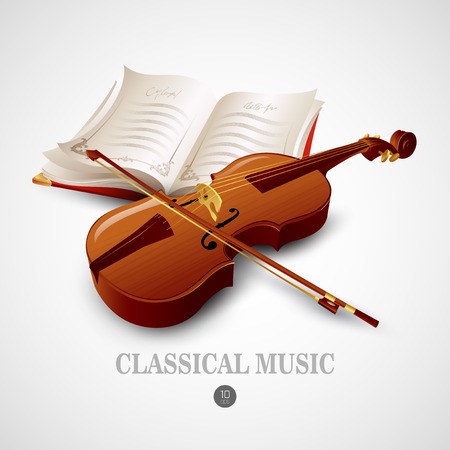Ludwig van Beethoven is one of the most famous and influential composers in the history of classical music. Born in Bonn, Germany in 1770, Beethoven’s music has endured for over two centuries and continues to be celebrated and studied by musicians and music lovers around the world. This article will provide a comprehensive overview of Beethoven’s life and work, examining his early life, musical style, deafness, legacy, performances and interpretations, personality and relationships, political views, influence on music theory and composition, and life in Vienna.
Early Life and Family of Beethoven
Beethoven was born into a family of musicians. His grandfather, also named Ludwig van Beethoven, was a professional musician and his father, Johann, was a singer and instrumentalist in the court orchestra. Beethoven’s early childhood was marked by tragedy, as his mother died when he was only 17 and his father became an alcoholic, leaving Beethoven to take care of his younger siblings.
Despite these challenges, Beethoven showed an early aptitude for music and began receiving formal training from his father and other local musicians. He made his public debut as a pianist at the age of eight and began composing his own music soon after. Beethoven’s musical education continued in earnest when he was sent to study with Christian Gottlob Neefe, the court organist in Bonn, who recognized his talent and encouraged him to pursue a career in music.
Beethoven’s early compositions were heavily influenced by the styles of his musical heroes, Joseph Haydn and Wolfgang Amadeus Mozart. He wrote numerous works for piano and chamber ensembles, as well as his first symphony, which premiered in Vienna in 1800. While these early works show promise and demonstrate Beethoven’s technical skill, they lack the emotional depth and innovation that would come to define his later works.
Beethoven’s Music
| Work Title | Opus Number | Year | Description |
| Symphony No. 3 | Op. 55 | 1803 | Originally dedicated to Napoleon, this symphony is notable for its length, complex structure, and use of dissonance. |
| Moonlight Sonata | Op. 27, No. 2 | 1801 | One of Beethoven’s most famous works, this piano sonata is characterized by its hauntingly beautiful melody and use of dynamic contrasts. |
| Symphony No. 9 | Op. 125 | 1824 | This symphony is particularly notable for its use of a choir and soloists in the final movement, a departure from the traditional symphonic form. |
| String Quartet No. 13 | Op. 130 | 1825 | Notable for its use of complex rhythms and dissonant harmonies, this string quartet was groundbreaking for the time. |
| Piano Concerto No. 5 | Op. 73 | 1809 | Also known as the Emperor Concerto, this piece is characterized by its technical difficulty and use of thematic development. |
Beethoven’s musical style evolved significantly over the course of his career, from the Classical style of his early works to the more complex and emotionally charged compositions of his later period. His most famous works, such as the Ninth Symphony and Moonlight Sonata, are widely recognized as masterpieces of the genre and continue to be performed and studied to this day.
The Ninth Symphony, which premiered in Vienna in 1824, is particularly notable for its use of a choir and soloists in the final movement, a departure from the traditional symphonic form. The piece has become synonymous with the idea of the “Ode to Joy,” a theme that has been used in countless films, advertisements, and other cultural contexts.
The Moonlight Sonata, one of Beethoven’s most famous piano works, is characterized by its hauntingly beautiful melody and use of dynamic contrasts. The piece was dedicated to one of Beethoven’s students, the Countess Giulietta Guicciardi, whom he had briefly been in love with.
While Beethoven’s most famous works have received widespread acclaim and recognition, he also wrote a number of lesser-known works that demonstrate his creativity and innovation. For example, his String Quartet No. 13 in B-flat Major, Op. 130, is notable for its use of complex rhythms and dissonant harmonies, which were groundbreaking for the time.
Personal Story: Beethoven’s Passion for Music
Beethoven’s passion for music was evident from a young age. My grandfather, who was a music teacher, once told me about a story he read in a biography of Beethoven. When Beethoven was a child, his father would often come home late from work and wake him up to play the piano for him. Despite being tired, Beethoven would eagerly jump out of bed and start playing. This dedication to his craft only grew stronger as he got older.
In fact, Beethoven was known to be so absorbed in his work that he would often lose track of time and forget to eat or sleep. There are stories of him pacing around his room, humming to himself and scribbling notes on scraps of paper, completely oblivious to the world around him.
This passion for music is evident in Beethoven’s compositions, which are filled with emotion and intensity. His music is a reflection of his own struggles and triumphs, as well as the upheavals of the world around him. Even as he struggled with deafness and other personal challenges, Beethoven continued to pour his heart and soul into his music, leaving behind a legacy that continues to inspire musicians and music lovers to this day.
Beethoven’s Deafness
Perhaps the most well-known aspect of Beethoven’s life is his gradual onset of deafness, which began in his late 20s and eventually left him completely deaf by the end of his life. Despite this significant challenge, Beethoven continued to compose and conduct, adapting to his condition by using a “conversation book” to communicate with others.
Beethoven’s deafness had a profound impact on his work, particularly in his later period. His compositions from this time are characterized by their intense emotional depth and innovative use of harmony and form. For example, his late string quartets, such as the String Quartet No. 14 in C-sharp minor, Op. 131, are marked by their unconventional structures and use of chromaticism and dissonance.
Beethoven’s Legacy
Beethoven’s impact on classical music is difficult to overstate. He is widely regarded as one of the greatest composers of all time and his works continue to be performed and studied by musicians and scholars around the world. Beethoven’s influence can be seen in the works of countless composers who came after him, including Johannes Brahms, Gustav Mahler, and Richard Wagner.
Beethoven’s music also played a significant role in shaping the Romantic era of classical music, which emphasized emotional expression and individualism. His works were seen as a departure from the more rigid and formal structures of the Classical period and paved the way for new forms of musical expression.
Beethoven’s influence extends beyond the realm of classical music, as well. His works have been used in countless films, television shows, and advertisements, and have been adapted into popular music genres such as rock and jazz.
Notable Performances and Interpretations
Live performances of Beethoven’s music continue to be a vital part of the classical music world. Some of the most famous performances of Beethoven’s music include the premiere of his Ninth Symphony in Vienna in 1824, which featured the composer himself conducting despite his deafness, and a performance of his Piano Concerto No. 5 in E-flat Major, Op. 73, by pianist Glenn Gould in 1957.
Interpretations of Beethoven’s music have also been the subject of much discussion and analysis. For example, some scholars have argued that Beethoven’s metronome markings, which indicate the tempo at which a piece should be played, were too fast and have led to performances that are overly frenetic. Others have suggested that Beethoven’s use of dynamic contrasts, such as the sudden shifts from loud to soft in the Moonlight Sonata, were meant to evoke the emotional turmoil of his personal life.
Beethoven’s Personality and Relationships
Beethoven’s personality was marked by a fierce independence and a strong sense of individualism. He was known for his stubbornness and his refusal to compromise his artistic vision, even in the face of significant opposition from his patrons and contemporaries.
Despite his sometimes difficult personality, Beethoven had close relationships with many of his family members and friends. He also had a number of important professional relationships, including his friendship with the composer Johann Nepomuk Hummel and his patronage by the Archduke Rudolf of Austria.
Beethoven’s personal struggles, including his deafness and his tumultuous love life, are reflected in his music. For example, his Piano Sonata No. 14 in C-sharp minor, Op. 27, No. 2, also known as the Moonlight Sonata, is thought to have been inspired by his love for the Countess Giulietta Guicciardi.
Beethoven’s Political Views
Beethoven’s political views were shaped by the turbulent political climate of his time, which included the French Revolution and the Napoleonic Wars. He was a passionate supporter of the ideals of the Enlightenment and believed strongly in individual freedom and democracy.
Beethoven’s political views are reflected in some of his works, particularly his Symphony No. 3 in E-flat Major, Op. 55, also known as the Eroica Symphony. The piece was originally dedicated to Napoleon Bonaparte, whom Beethoven saw as a champion of individual freedom and democratic ideals. However, after Napoleon declared himself emperor, Beethoven famously scratched out the dedication and renamed the piece.
Beethoven’s Influence on Music Theory and Composition
Beethoven’s impact on music theory and composition is significant and far-reaching. He was a pioneer in the use of dissonance, tonality, and other musical techniques that would become staples of the Romantic era. He also experimented with unconventional forms and structures, such as his use of fugue in the finale of his Ninth Symphony.
Beethoven’s influence can be seen in the works of countless composers who came after him, including Brahms, Mahler, and Wagner. His innovations paved the way for new forms of musical expression and helped to shape the future of classical music.
Beethoven’s Life in Vienna
Beethoven moved to Vienna in 1792 and spent the majority of his career there. The city had a significant impact on his music, as he was able to study with some of the greatest musicians of his time and perform for influential patrons and audiences.
Beethoven’s relationships with his patrons, publishers, and other musicians in Vienna were often fraught with tension, as he was known for his difficult personality and his refusal to compromise his artistic vision. Despite these challenges, Beethoven was able to establish himself as one of the most important composers of his time and his music continues to be celebrated and studied to this day.
Conclusion
In conclusion, Ludwig van Beethoven is one of the most important and influential composers in the history of classical music. His life and work continue to be celebrated and studied by musicians and music lovers around the world. From his early compositions to his innovative and emotionally charged later works, Beethoven’s music represents a pinnacle of artistic achievement and a lasting testament to the power of human creativity.
Frequently Asked Questions
Who was Beethoven and why is he important in classical music?
Beethoven was a famous composer who revolutionized classical music with his innovative works.
What are some of Beethoven’s most famous pieces?
Some of Beethoven’s most famous works include his 5th Symphony, Moonlight Sonata, and Fur Elise.
How did Beethoven’s deafness affect his music?
Beethoven’s deafness forced him to rely on his inner ear, allowing him to create music that was more imaginative and innovative.
Who might not enjoy Beethoven’s music and why?
Some people who prefer more modern music might not enjoy Beethoven’s classical sound.
What resources can I use to learn more about Beethoven’s life and music?
There are many biographies and documentaries available online that provide insight into Beethoven’s life and music.
How can I appreciate Beethoven’s music even if I’m not a fan of classical music?
Try listening to Beethoven’s music with an open mind and focus on the complexity and emotion of the pieces.




